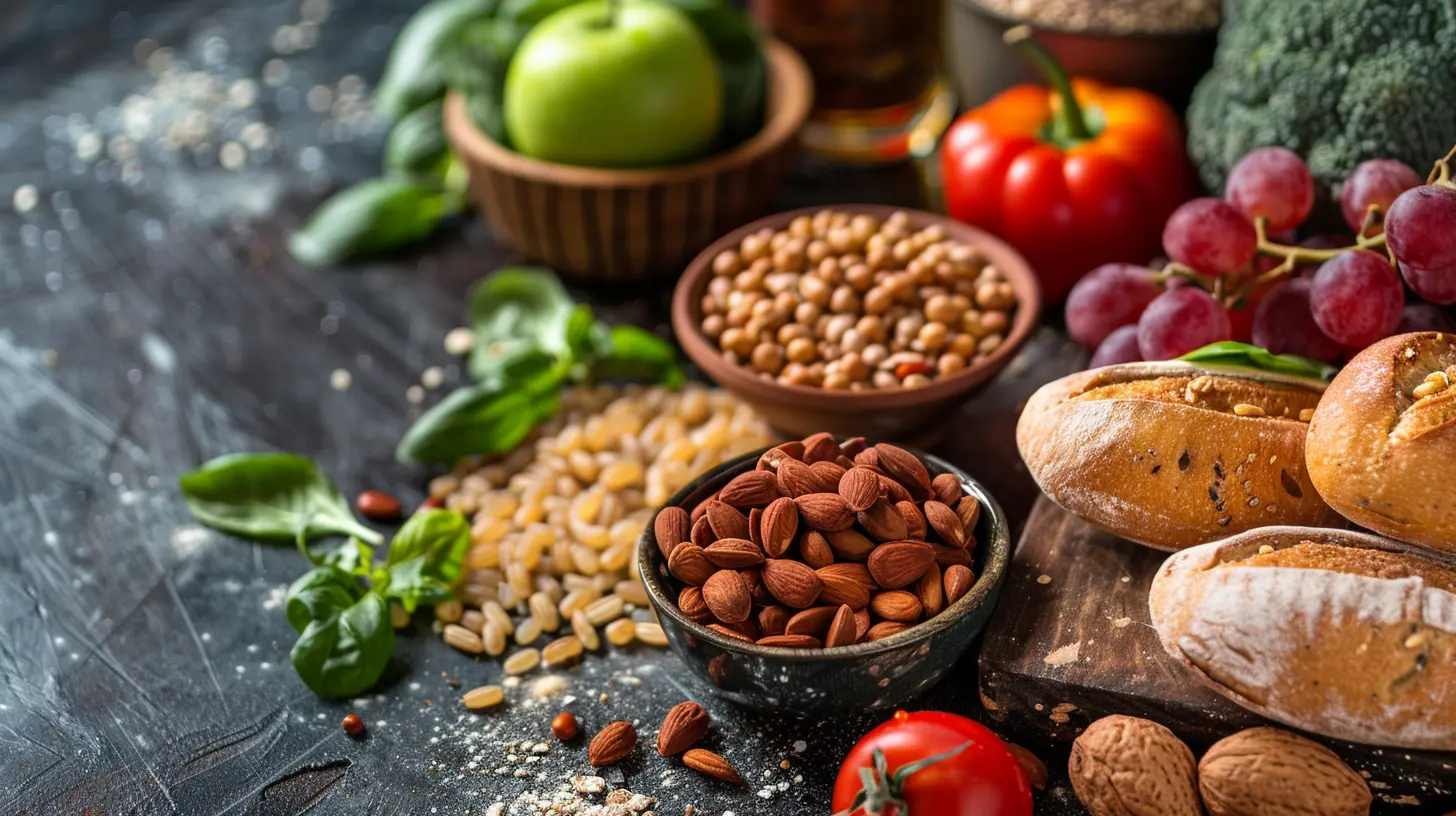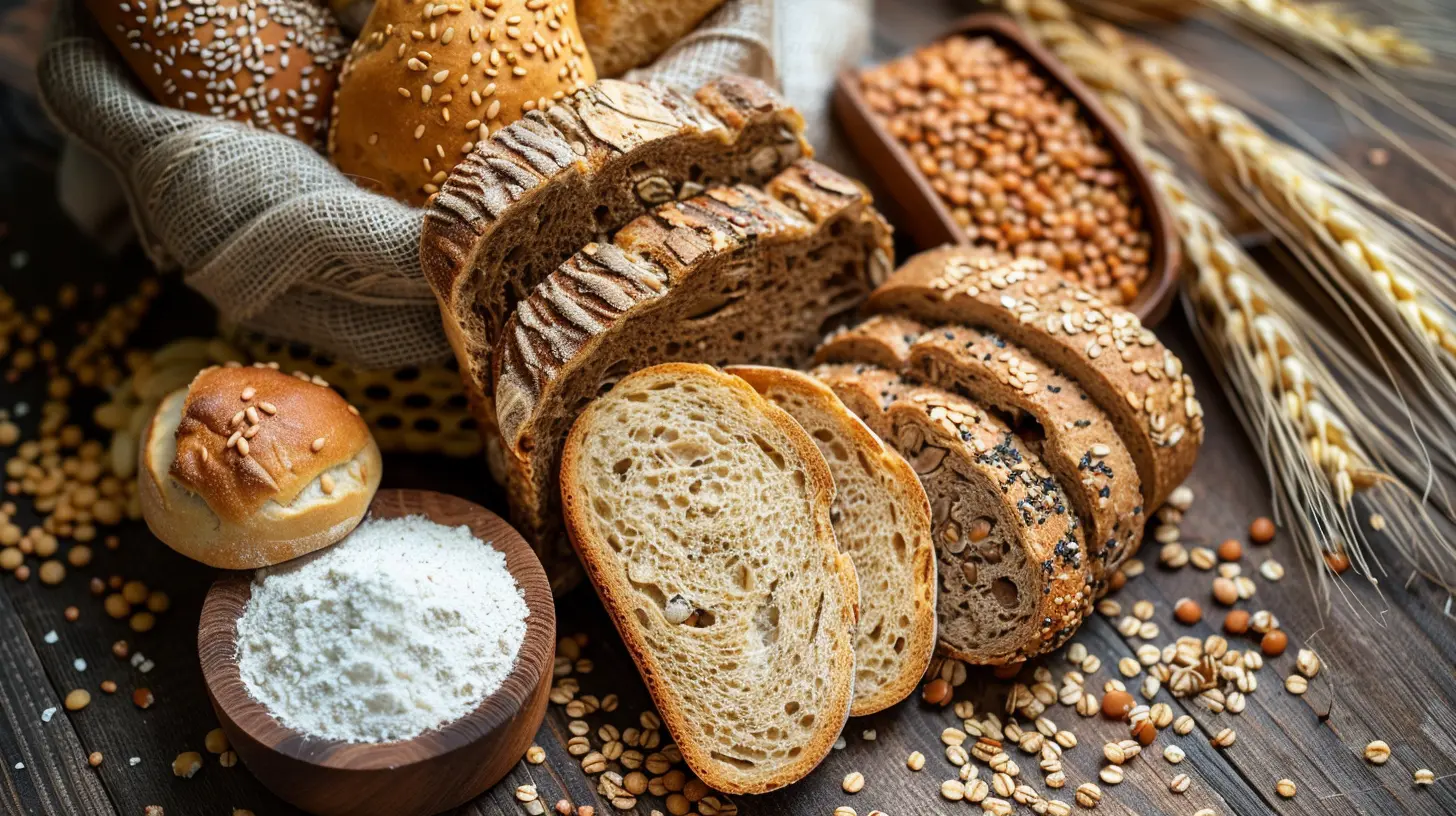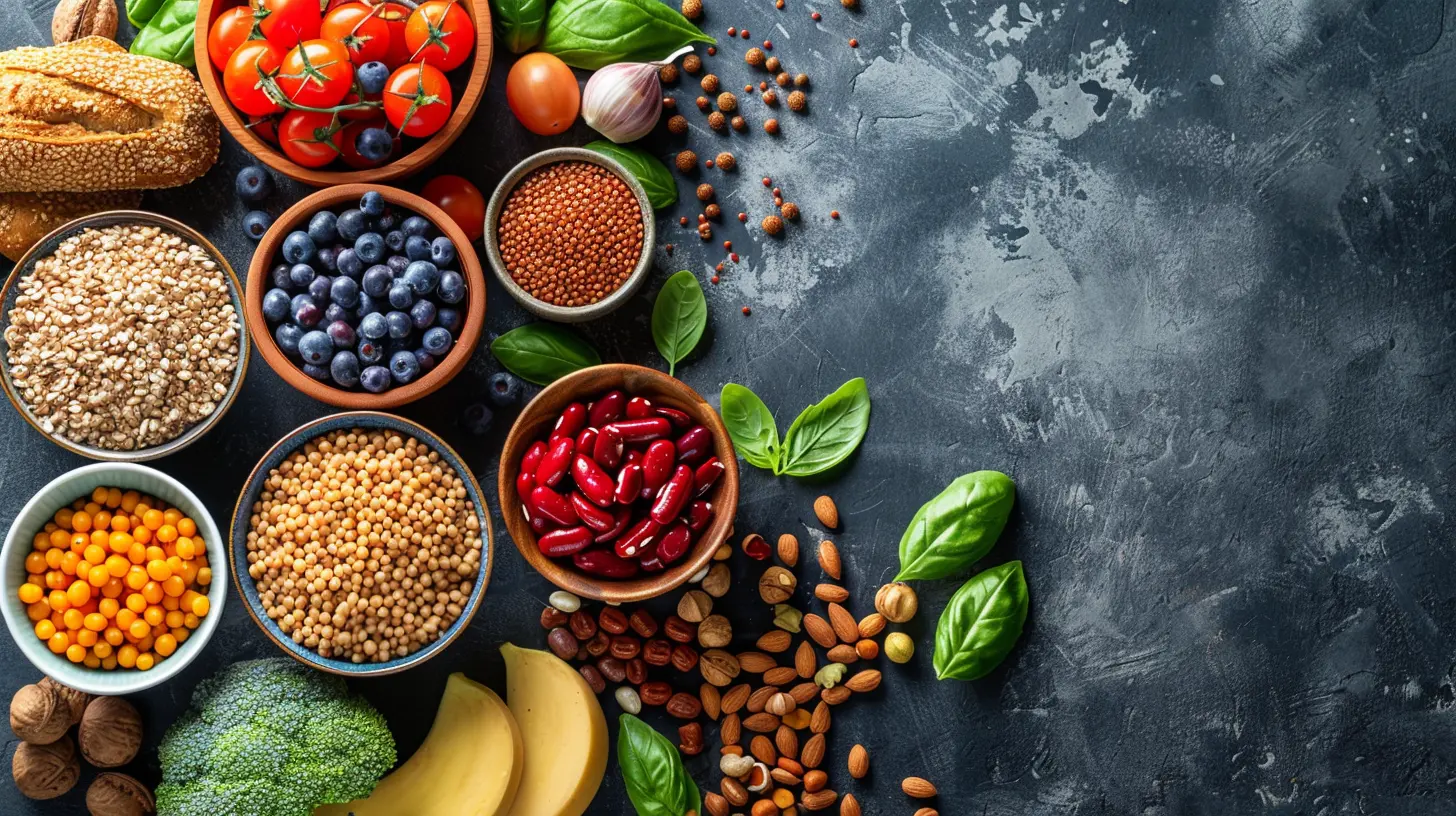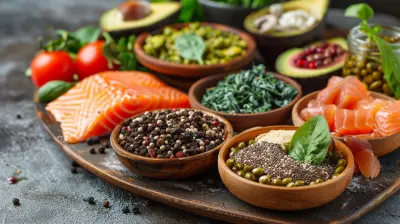How to Boost Your Gut Health on a Gluten-Free Diet
17 August 2025
Everyone's talking about gut health these days, and for good reason. Your gut is the command center for your digestion, immune system, and even mental health. But if you're following a gluten-free diet—whether it's for celiac disease, gluten sensitivity, or personal preference—you may be wondering how to keep your gut in top shape.
Going gluten-free has its benefits, but it can also strip your gut of essential nutrients and beneficial bacteria if you’re not careful. So how do you support your digestive system while avoiding gluten? Let’s break it down in a simple, no-nonsense way. 
Why Gut Health Matters
Your gut isn’t just about digestion—it’s the home to trillions of bacteria, both good and bad. These tiny microbes help with:- Breaking down food
- Absorbing nutrients
- Supporting your immune system
- Keeping bad bacteria in check
- Regulating your mood (yes, your gut talks to your brain!)
When your gut is happy, your whole body feels the benefits. But when things are off-balance, you might experience bloating, fatigue, skin issues, or even mood swings.
Now, let’s talk about how to nourish your gut while staying gluten-free. 
The Challenge of Gut Health on a Gluten-Free Diet
Here’s the thing: gluten-free foods often lack fiber, a crucial nutrient for gut health. Many gluten-free products are processed and loaded with sugar, which can actually harm your gut bacteria.If you’re swapping out whole grains for processed gluten-free cookies and breads, you might be unknowingly starving the good bacteria in your gut. But don’t worry—there are plenty of ways to keep your gut happy without gluten. 
How to Improve Gut Health on a Gluten-Free Diet
1. Eat More Fiber-Rich Foods
Fiber is like fuel for your gut bacteria. Without it, your microbiome can suffer. Since many traditional high-fiber foods contain gluten, you'll need to be intentional about finding gluten-free fiber sources.Here are some of the best options:
- Fruits (bananas, apples, pears, berries)
- Vegetables (broccoli, carrots, spinach, Brussels sprouts)
- Legumes (lentils, chickpeas, black beans)
- Nuts and Seeds (chia seeds, flaxseeds, almonds, walnuts)
- Gluten-Free Whole Grains (quinoa, buckwheat, millet, brown rice)
Adding a variety of these to your meals will keep your digestion running smoothly.
2. Incorporate More Fermented Foods
Fermented foods are like superheroes for your gut. They contain probiotics, which are live bacteria that help balance your gut microbiome.Some of the best gluten-free fermented foods include:
- Yogurt (look for unsweetened varieties with live cultures)
- Kefir (a probiotic-rich dairy drink)
- Sauerkraut (fermented cabbage, but check for added gluten)
- Kimchi (spicy fermented vegetables)
- Miso (fermented soybean paste)
- Kombucha (fermented tea, but be mindful of added sugars)
A little bit of these foods each day can go a long way in improving digestion and reducing gut inflammation.
3. Don’t Rely on Processed Gluten-Free Foods
Let’s be real—many gluten-free products are ultra-processed and packed with sugar, preservatives, and fillers. These can mess with your digestion and contribute to inflammation.Instead of depending on gluten-free bread, pasta, and cookies, focus on whole, natural foods. Fresh vegetables, lean proteins, and healthy fats are always a better choice than processed substitutes.
If you do choose gluten-free packaged foods, check the ingredient list. The shorter, the better!
4. Stay Hydrated
Water is essential for digestion. It helps break down food and keeps things moving in your intestines. Plus, staying hydrated supports your gut lining, preventing issues like bloating and constipation.Aim for at least 8 glasses of water a day. If plain water bores you, try herbal teas, infused water with fruit, or homemade bone broth for extra gut-healing benefits.
5. Support Your Gut with Prebiotics
If probiotics are the good bacteria, prebiotics are the food that feeds them. They help probiotics thrive and do their job efficiently.Great gluten-free prebiotic foods include:
- Garlic
- Onions
- Asparagus
- Leeks
- Artichokes
- Bananas
- Apples
Pairing prebiotics with probiotics creates the perfect gut-healing combination.
6. Manage Stress Levels
Believe it or not, stress directly affects your digestion. When you're constantly stressed, your gut bacteria can suffer, leading to issues like bloating, constipation, or inflammation.Here are some simple ways to reduce stress for a happier gut:
- Practice deep breathing or meditation
- Get enough sleep (7-9 hours per night)
- Exercise regularly (even a daily walk helps)
- Spend time in nature
- Engage in hobbies that relax you
Your gut and brain are connected, so taking care of your mental health is just as important as your diet.
7. Consider a High-Quality Probiotic Supplement
If you’re struggling with gut health despite eating well, a probiotic supplement might help. Look for one with diverse strains of bacteria, like Lactobacillus and Bifidobacterium, which are great for digestion.However, don’t rely on supplements alone—always prioritize real, whole foods first.
8. Cut Back on Sugar and Artificial Sweeteners
Sugar feeds the bad bacteria in your gut, which can lead to imbalances, bloating, and cravings.Artificial sweeteners aren’t much better—they can disrupt gut bacteria and cause digestive discomfort. Instead, opt for natural sweeteners like:
- Raw honey
- Pure maple syrup
- Stevia (in moderation)
The less added sugar in your diet, the happier your gut will be.
9. Eat Mindfully and Chew Your Food Well
Digestion starts in your mouth! If you’re eating too quickly or not chewing properly, your gut has to work harder to break down food.Slow down, chew thoroughly, and savor your meals. Your gut will thank you.
10. Get Enough Sleep
Lack of sleep can throw off your gut bacteria balance and lead to digestive issues. Aim for a consistent sleep schedule and good sleep hygiene, like:- Avoiding screens before bed
- Keeping your bedroom cool and dark
- Sticking to a regular sleep routine
A well-rested body means a healthier gut. 
Final Thoughts
Going gluten-free doesn’t have to mean sacrificing gut health. With the right food choices, lifestyle habits, and a little mindfulness, you can keep your digestive system strong and thriving.Remember, it's not just about avoiding gluten—it’s about nourishing your gut with the right nutrients. So, next time you're planning your meals, think about feeding your gut the same way you'd care for a garden—give it the right fuel, keep it hydrated, and watch it flourish.
Cheers to happy digestion and a healthier you!
all images in this post were generated using AI tools
Category:
Gluten FreeAuthor:

Madeline Howard
Discussion
rate this article
1 comments
Selah McPhee
Maintaining gut health on a gluten-free diet is essential for overall wellness. Focus on incorporating diverse, fiber-rich foods like fruits, vegetables, and legumes, while including fermented options like yogurt and sauerkraut for probiotics. Staying hydrated and managing stress can also significantly enhance gut function and balance.
August 27, 2025 at 3:10 PM

Madeline Howard
Thank you for your insightful comment! You're absolutely right—diversifying fiber-rich foods and incorporating probiotics are key to supporting gut health on a gluten-free diet. Hydration and stress management are equally important!


